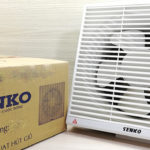Should You Make it a Habit to Sleep with the Air Conditioner On?
Air conditioning systems provide numerous advantages to users, making them an invaluable asset.
- Using an air conditioner can be greatly beneficial, especially during hot summer days when the outside temperature is high. Not only does it provide you with cooler and more comfortable air, but it also contributes to better sleep and an overall improved quality of life.
- Certain contemporary air conditioners boast additional features that optimize air quality, ensuring a hygienic and safe environment for your well-being.

Using the air conditioner improperly or excessively can have detrimental effects on the body. This includes:
-
The continuous use of the device causes a decrease in the air volume in the room, resulting in a significant impact on respiration.
- Excessive and prolonged usage of air conditioning can result in dry skin and dry nasal passages, mainly due to the low humidity levels typically found in air-conditioned environments, which can hover around 50%. These conditions have the potential to lead to skin ailments like dermatitis and respiratory issues such as sinusitis. Therefore, it is important to be mindful of the potential impacts of extended air conditioner usage on one’s skin and respiratory health.
- Improper air conditioner maintenance and lack of a guaranteed air filter can result in the circulation of contaminated air, leading to the onset of respiratory and infectious ailments.
- Prolonged use of air conditioning systems in conjunction with maintaining closed doors can lead to the accumulation of bacteria, dust, and mold, ultimately resulting in allergic reactions over time.
- Setting the air conditioner temperature too low overnight can result in fatigue and stiffness upon waking up.
- Using electronic devices for prolonged periods can have negative effects on your eyesight. It can lead to eye problems such as conjunctivitis and eyelid inflammation, as well as create issues for individuals who wear contact lenses. Thus, it is important to be mindful of the potential risks associated with excessive screen time.

How to Maintain Your Health While Sleeping in an Air-Conditioned Room
Advice to Avoid Changing Temperatures Abruptly
Proper Use of Air Conditioner
When using an air conditioner, it is important to avoid turning it on immediately after being in the sun or engaging in heavy physical activity. This sudden change in temperature can be uncomfortable and potentially harmful to your health.
Instead, it is recommended to first turn on a fan to allow your body to gradually acclimate to the cooler air. This will help prevent any sudden shocks to your system and make the transition to the air conditioner more comfortable.
If you prefer to use the air conditioner right away, it is advisable to initially set it to a higher temperature and then gradually lower it over time. This will provide a smoother adjustment to the cool air and reduce the risk of any adverse effects on your body.
It is not advisable to allow children who are active and sweaty to enter an air-conditioned room immediately. Allowing the child to leave the room right after turning off the air conditioner can result in a sudden temperature difference that may prevent the child’s body from adjusting properly, potentially leading to health issues such as headaches and fever. It is recommended to give the child some time to cool down and acclimate to a comfortable temperature before entering the air-conditioned space.
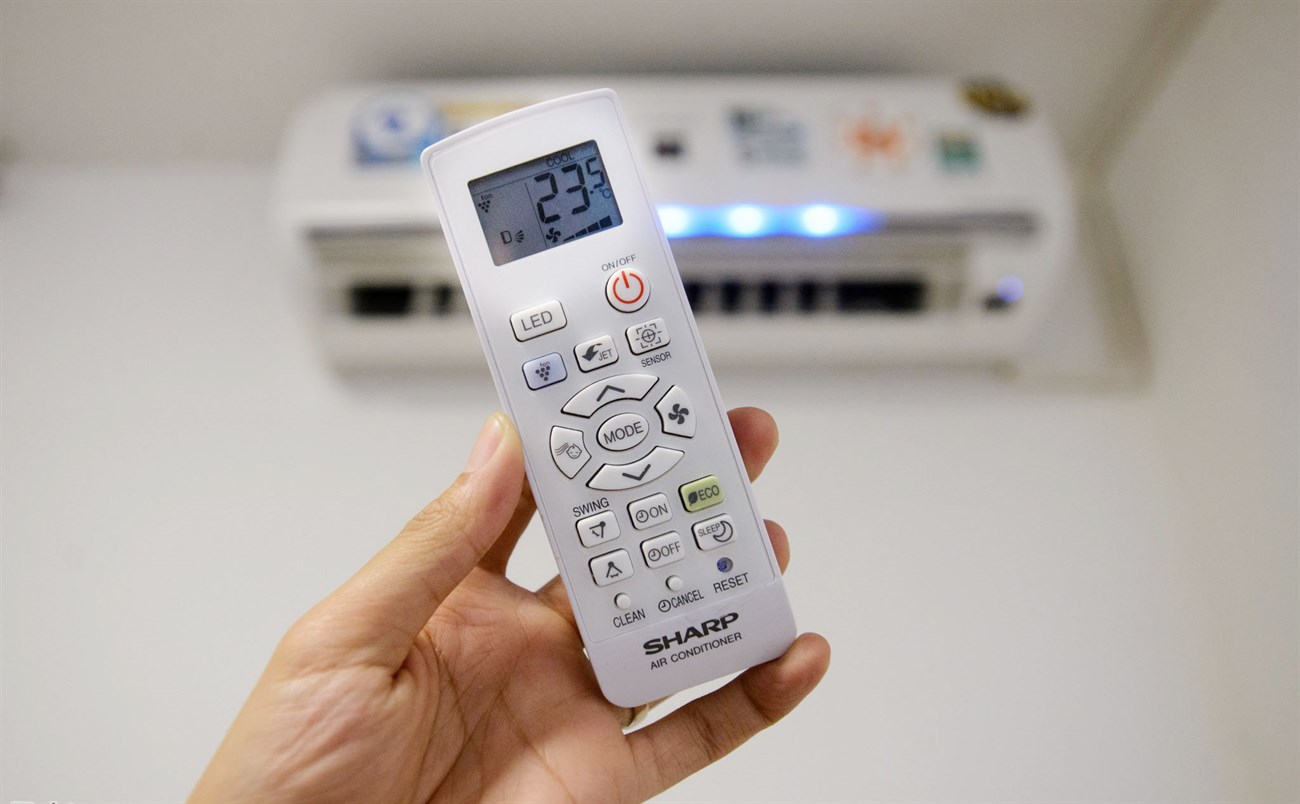
Minimize Direct Air Conditioner-Blown Air Contact With the Body
Excessive exposure to the direct airflow from an air conditioner can pose a significant risk of discomfort from cold temperatures. To mitigate this, it is crucial to carefully consider the direction of the airflow during installation to ensure optimal conditions.
Upgrade your air conditioning system by choosing a model that combines various features to maximize comfort and efficiency. With adjustable airflow direction, you can cool your space quickly and effectively without compromising your health.
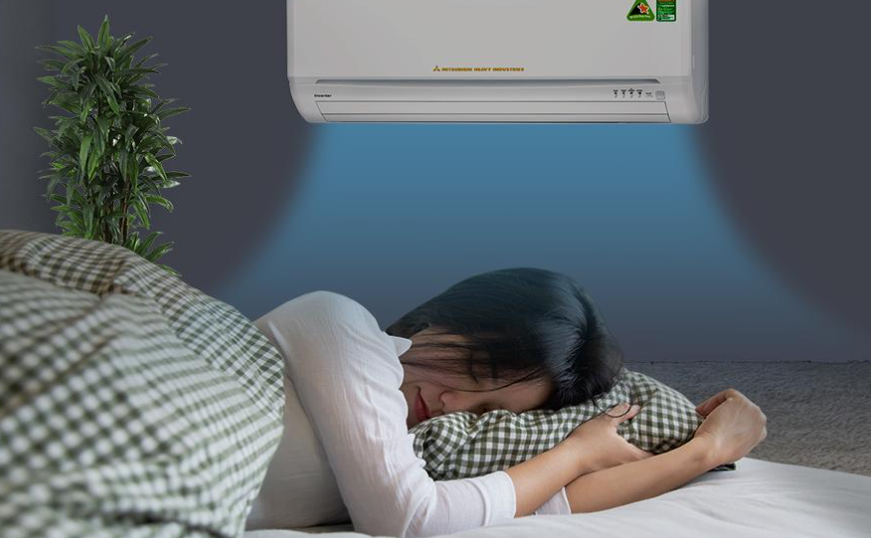
Warning: Avoid Sleeping in an Air-Conditioned Room After Drinking Alcohol
Alcohol intoxication can lead to drowsiness, increasing the risk of inadvertently turning on the air conditioner at a low temperature and getting cold during sleep.
Exposure to cold for prolonged periods, particularly when individuals are unaware or unable to adequately protect themselves, can result in severe consequences, including shock, paralysis, and even potential endangerment of life.

Advice: Don’t Shower Before Bedtime if You Sleep in an Air-Conditioned Room
After a shower, the body temperature naturally decreases. However, going to sleep immediately in an air-conditioned room can hinder the body’s ability to respond effectively. This can negatively impact blood circulation, leading to reduced blood flow to the brain, as well as affecting blood pressure and heart rate.
Excessive use of air conditioning after a shower may pose a potential health risk, particularly for individuals with weakened immune systems. It can increase the likelihood of experiencing a stroke or cerebral hemorrhage.
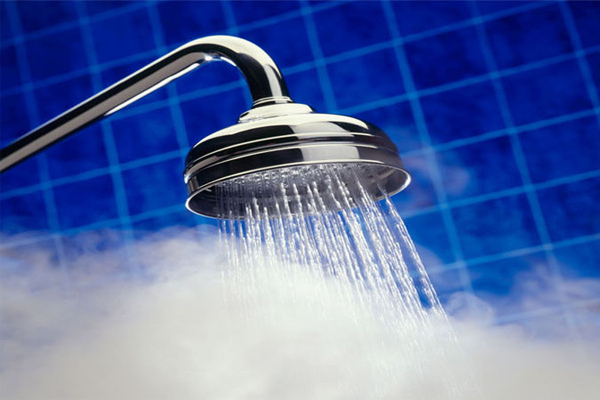
Advice on Preserving Humidity in Air-Conditioned Room During Summer
Excessive reduction of humidity levels within a room can result in a dry atmosphere that may cause discomfort to the nasal passages and throat, ultimately leading to coughing during sleep.
Exposure to excessively dry air can lead to the thickening of the mucous layer, which serves as a protective barrier for the nasal and sinus membranes. This thickening impedes airflow and limits the ability to moisturize the nose, particularly for individuals with small nasal passages such as infants and the elderly. Maintaining an optimal humidity level of 30% to 50% in air-conditioned rooms is therefore recommended.
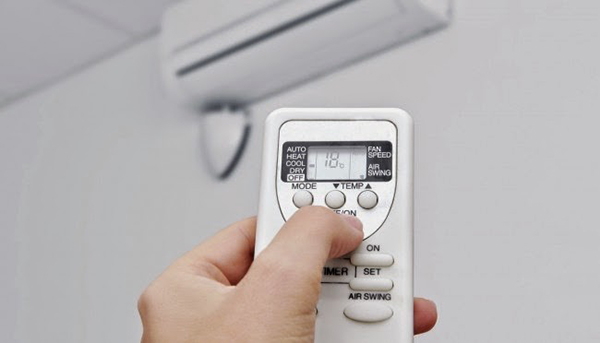
Staying Hydrated and Maintaining High Humidity to Combat Viral Transmission
Continuous use of an air conditioner can result in dry skin and dehydration. To counteract these effects, it is important to consume water regularly to maintain proper hydration levels. Furthermore, opting for newer air conditioner models equipped with built-in humidifying capabilities can help alleviate this problem.

How to Maintain an Air Conditioner: Tips for Regular Cleaning
An air conditioner functions by circulating cold air into a room while removing heated air and dust particles. Consequently, failing to utilize an air filter or regularly maintaining it can result in the efficient functioning of the air conditioner, but may unknowingly contribute to respiratory ailments.
Regular maintenance of your air conditioner is essential for its longevity and ensuring your family’s health. We recommend scheduling maintenance at least twice a year to effectively clean and maintain the machine. This not only increases its lifespan but also eliminates harmful bacteria and mold, providing a healthier living environment.
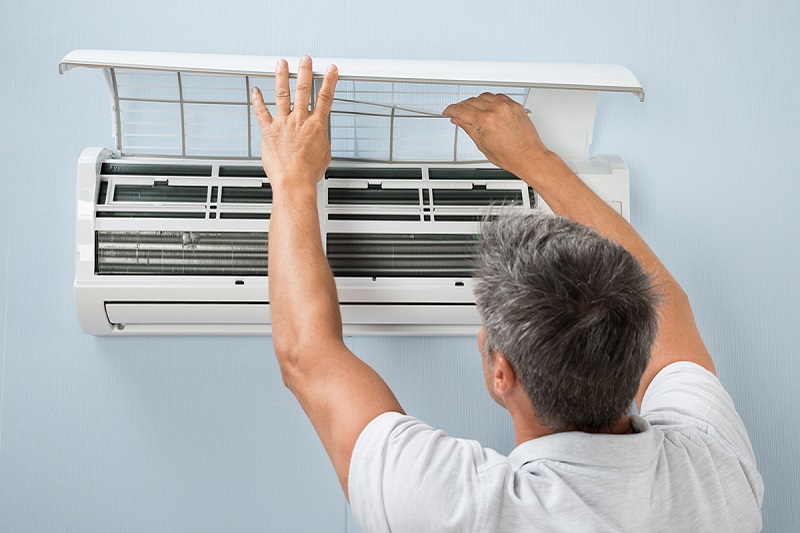
Explore the merits of sleeping with the air conditioner on and familiarize yourself with essential precautions to observe in an air-conditioned room. We trust that this comprehensive article will aid you in optimizing your air conditioner usage, as well as safeguarding the well-being of yourself and your loved ones.


























